The Economics of Solar Power Costs and Benefits
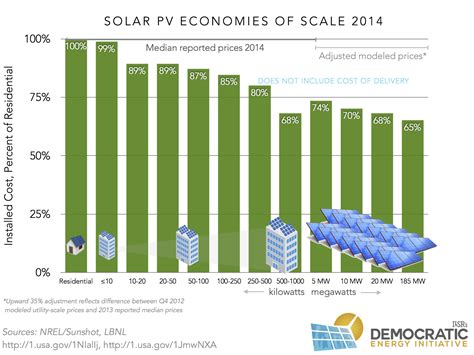
As the world continues to face pressing environmental challenges, the need for renewable energy sources has become more urgent than ever. Solar power, in particular, has emerged as a promising alternative to traditional fossil fuels due to its numerous benefits. In this article, we will explore the economics of solar power costs and benefits, shedding light on why this renewable energy source is becoming increasingly popular.
The Costs of Solar Power
1. Initial Investment
One of the major costs associated with solar power is the initial investment required to install solar panels. While the cost of solar panels has decreased significantly in recent years, it still represents a significant upfront expense for many homeowners and businesses.
2. Maintenance and Repairs
Another cost to consider is the maintenance and repair of solar panels. While solar panels are relatively low-maintenance compared to other energy sources, they still require occasional cleaning and maintenance to ensure optimal performance.
3. Storage and Grid Integration
In order to fully harness the power of solar energy, it is important to consider the costs associated with energy storage and grid integration. Storage solutions such as batteries are necessary to store excess energy generated during the day for use at night or during periods of low sunlight.
The Benefits of Solar Power
1. Cost Savings
One of the biggest benefits of solar power is the potential cost savings it offers. By generating your own electricity from the sun, you can reduce or even eliminate your electricity bill, saving you money in the long run.
2. Environmental Impact
Solar power is a clean and renewable energy source that produces no greenhouse gas emissions or air pollution during operation. By switching to solar power, you can significantly reduce your carbon footprint and help combat climate change.
3. Energy Independence
By generating your own electricity from solar power, you can reduce your reliance on traditional energy sources and the grid. This can provide greater energy independence and security in the face of power outages or energy price fluctuations.
The Economics of Solar Power
When considering the economics of solar power, it is important to weigh the upfront costs against the long-term benefits. While the initial investment may seem daunting, the potential cost savings and environmental benefits make solar power a worthwhile investment for many homeowners and businesses.
Incentives and Rebates
One way to offset the costs of solar power is to take advantage of government incentives and rebates. Many governments offer financial incentives to encourage the adoption of solar power, making it more affordable for consumers.
Return on Investment
Another factor to consider is the return on investment (ROI) of solar power. While it may take several years to recoup the initial investment, the long-term savings on electricity bills and the potential increase in property value can make solar power a profitable investment in the long run.
Financing Options
For those who may not have the upfront capital to invest in solar power, there are a variety of financing options available. Solar leases, power purchase agreements, and solar loans can help make solar power more accessible and affordable for homeowners and businesses.
Conclusion
In conclusion, the economics of solar power costs and benefits make it a compelling option for those looking to reduce their electricity bills, lower their carbon footprint, and increase their energy independence. While there are upfront costs to consider, the long-term savings and environmental benefits of solar power make it a wise investment for a sustainable future.
Learn More :
 Harnessing the Power of the Sun: A Sustainable Energy Solution
22 February 2024 by Admin
Harnessing the Power of the Sun: A Sustainable Energy Solution
22 February 2024 by Admin
The sun has long been a powerful source of energy for our planet. From providing warmth and light to supporting the growth of plants through photosynthesis, the sun plays a crucial role in sustaining ...
 The Future of Energy Sustainability: Harnessing Solar Energy
22 February 2024 by Admin
The Future of Energy Sustainability: Harnessing Solar Energy
22 February 2024 by Admin
As the world continues to face challenges in meeting energy demands while also reducing carbon emissions, the focus has turned to renewable energy sources. Among these sources, solar energy stands out...
![Environmental Impact of Solar Energy [Positive/Negative]](/image/blogseasourcedatacom/the-environmental-impact-of-solar-energy.jpg) The Environmental Impact of Solar Energy
22 February 2024 by Admin
The Environmental Impact of Solar Energy
22 February 2024 by Admin
Solar energy is a renewable source of power that has gained popularity in recent years due to its numerous benefits, including reducing reliance on fossil fuels and decreasing greenhouse gas emissions...
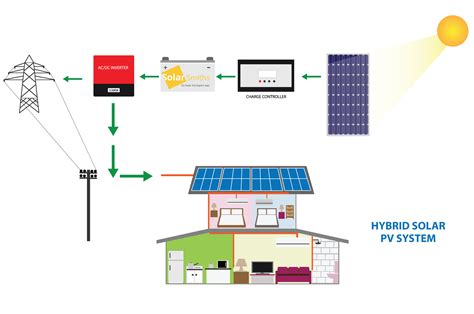 Types of Solar Power Systems
22 February 2024 by Admin
Types of Solar Power Systems
22 February 2024 by Admin
Solar power systems are becoming increasingly popular as a renewable energy source. There are several different types of solar power systems available, each with their own unique features and benefits...
 The Basics of Solar Energy
22 February 2024 by Admin
The Basics of Solar Energy
22 February 2024 by Admin
Solar energy is a renewable source of energy that is derived from the sun's rays. It is becoming increasingly popular as countries around the world strive to reduce their reliance on fossil fuels and ...
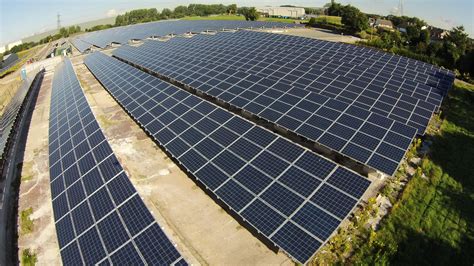 The Rise of Solar Farms: Large-Scale Solar Power Generation
22 February 2024 by Admin
The Rise of Solar Farms: Large-Scale Solar Power Generation
22 February 2024 by Admin
Solar power has gained significant traction in recent years as a clean, renewable energy source that has the potential to revolutionize the way we generate electricity. Solar farms, also known as sola...
 Challenges and Solutions in Solar Energy Implementation
22 February 2024 by Admin
Challenges and Solutions in Solar Energy Implementation
22 February 2024 by Admin
Solar energy is a renewable source of energy that has gained popularity in recent years due to its environmental benefits and decreasing costs. However, there are still challenges that need to be over...
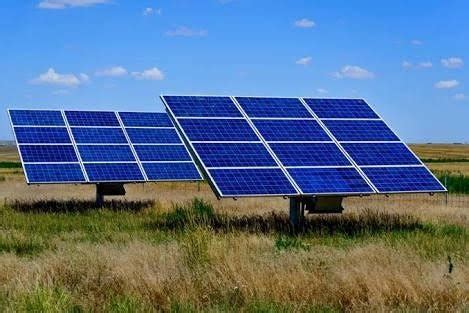 Solar Power in Developing Countries
22 February 2024 by Admin
Solar Power in Developing Countries
22 February 2024 by Admin
Solar power, also known as solar energy, has become an increasingly popular source of renewable energy in developing countries. With the advancement of technology and the decreasing costs of solar pan...
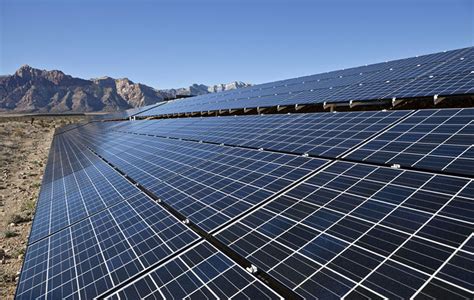 The Role of Solar Energy in Climate Change Mitigation
22 February 2024 by Admin
The Role of Solar Energy in Climate Change Mitigation
22 February 2024 by Admin
Climate change is one of the most pressing issues of our time, with the potential to greatly impact the future of our planet. As global temperatures rise and extreme weather events become more common,...
 The Impact of Solar Energy on Job Creation
22 February 2024 by Admin
The Impact of Solar Energy on Job Creation
22 February 2024 by Admin
Solar energy has become a major player in the renewable energy sector, with more and more countries turning to solar power as a sustainable and clean energy source. In addition to its environmental be...
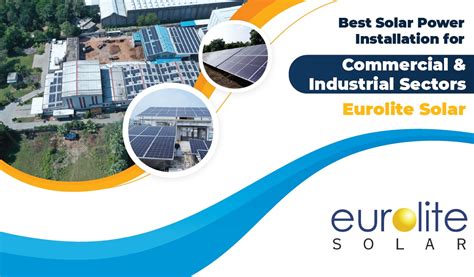 The Role of Solar Energy in Commercial and Industrial Sectors
22 February 2024 by Admin
The Role of Solar Energy in Commercial and Industrial Sectors
22 February 2024 by Admin
Solar energy has become an increasingly popular source of renewable energy in recent years, particularly in the commercial and industrial sectors. With advancements in technology and decreasing costs,...
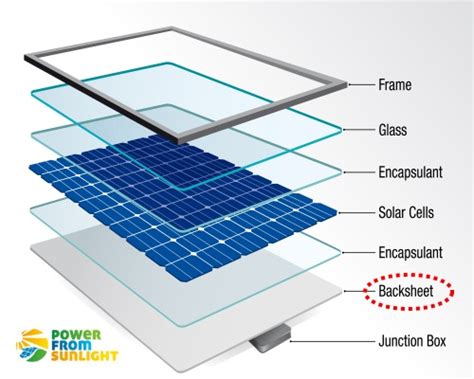 The Components and Construction of Solar Panels
22 February 2024 by Admin
The Components and Construction of Solar Panels
22 February 2024 by Admin
Solar panels are an essential part of renewable energy systems, converting sunlight into electricity. Understanding the components and construction of solar panels is crucial for anyone looking to inv...
 The Importance of Government Incentives for Solar Energy Adoption
22 February 2024 by Admin
The Importance of Government Incentives for Solar Energy Adoption
22 February 2024 by Admin
Solar energy has been gaining popularity as a clean and renewable source of energy that can help reduce our reliance on fossil fuels. However, the high upfront costs of installing solar panels can be ...
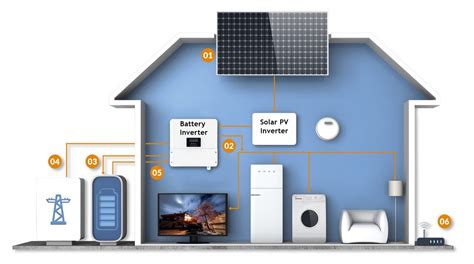 Solar Energy Storage Solutions
22 February 2024 by Admin
Solar Energy Storage Solutions
22 February 2024 by Admin
Solar energy has become an increasingly popular renewable energy source in recent years. As technology continues to advance, more and more homeowners and businesses are turning to solar panels to powe...
 The Application of Solar Energy in Residential Settings
22 February 2024 by Admin
The Application of Solar Energy in Residential Settings
22 February 2024 by Admin
Solar energy is a renewable source of energy that has gained popularity in recent years due to its numerous benefits, including its low environmental impact and potential cost savings. In residential ...
 The Importance of Solar Energy Conversion Efficiency
22 February 2024 by Admin
The Importance of Solar Energy Conversion Efficiency
22 February 2024 by Admin
Solar energy is a renewable and abundant source of energy that has the potential to meet a significant portion of our energy needs. With advancements in technology, solar energy has become more afford...
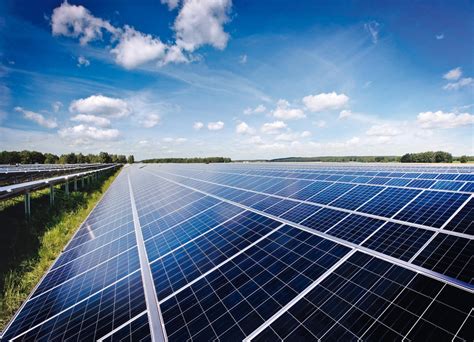 Photovoltaic Technology: How Solar Cells Work
22 February 2024 by Admin
Photovoltaic Technology: How Solar Cells Work
22 February 2024 by Admin
Photovoltaic technology, also known as solar cell technology, is a renewable energy source that converts sunlight into electricity. Solar cells are made of materials that exhibit the photovoltaic effe...
 The Role of Solar Energy in Space Exploration
22 February 2024 by Admin
The Role of Solar Energy in Space Exploration
22 February 2024 by Admin
Solar energy has played a crucial role in the advancements of space exploration. Since the beginning of space travel, solar power has been utilized to fuel spacecrafts, power rovers on other planets, ...
 Advancements in Solar Technology
22 February 2024 by Admin
Advancements in Solar Technology
22 February 2024 by Admin
Solar technology has come a long way in recent years, with new advancements being made constantly to improve efficiency, affordability, and accessibility. From advancements in solar panel technology t...